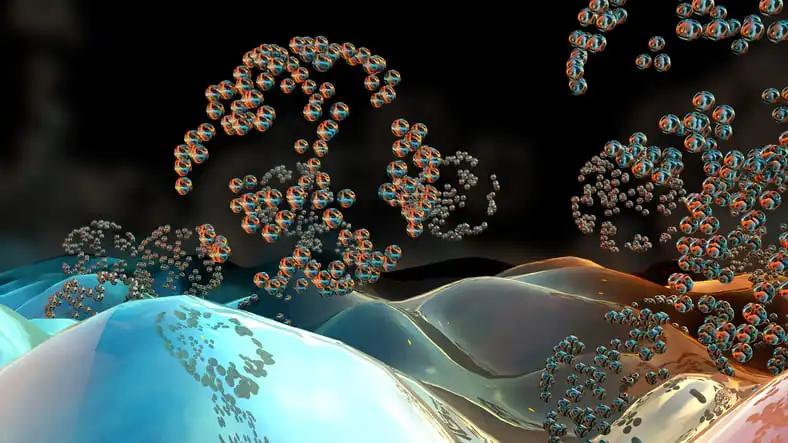KEY TAKEAWAYS
- The CAR-T Cell Therapy registered under NCT04916860 aimed to assess the efficacy and safety of NS7CAR T-cell therapy in R/R T-ALL/LBL with CNS involvement.
- Peripheral blood mononuclear cells were collected from patients and used to derive NS7CAR T cells through a novel fratricide-resistant approach.
- The study demonstrated that NS7 CAR-T therapy is a promising approach for R/R CNS T-ALL/LBL, showing high efficacy in achieving complete remission in CSF without severe neurotoxicity.
There are a few studies that revealed the effectiveness and safety of CD7-targeted chimeric antigen receptor (CAR) for T-cell acute lymphoblastic leukemia(T-ALL) and T-cell lymphoblastic lymphoma (T-LBL). But still, it’s unclear if CD7 CAR-T cells efficiently enter the blood-brain barrier and treat central nervous system (CNS) T-ALL/LBL without causing additional neurotoxicity. The study aimed to explore the efficacy and safety of NS7CAR T-cells for relapsed or refractory (R/R) T-ALL/LBL with CNS involvement.
In the patients involved in the study, peripheral blood mononuclear cells were collected from them by leukapheresis. A novel fratricide-resistant approach was developed to derive naturally selected anti-CD7 CAR (NS7CAR) T cells using lentiviral transduction of peripheral T cells, allowing them to overcome CD7-directed fratricide without needing additional genetic modifications. (NS7CAR is a second-generation murine-based CAR-T that includes 4-1BB and CD3ζ co-stimulatory domains.) Before the infusion of NS7CAR T cells, all the patients were given intravenous Cyclophosphamide (300 mg/m2/d) and fludarabine (30 mg/m2/d) on day -5 to day -3. The proliferation of CAR-T cells in the cerebrospinal fluid (CSF) was measured using flow cytometry (FCM). A total of 10 patients with CNS T-ALL (n=8) and T-LBL (n=2) were enrolled in the study and received NS7CAR T cells from December 2020 to June 2022. The median patient age was 14.5 (2-37) years old. About 3 patients with relapses from prior allogeneic hematopoietic stem cell transplantation (allo-HSCT) were also enrolled. While enrolling, 6 patients had CNS-3 status (blasts≥5/μL in CSF), and 4 were CNS-2 status (blasts<5/μL in CSF). A total of 8 patients had leukemic cells in their bone marrow (BM) and CNS. About 5 patients were found with combined extramedullary disease (EMD) except for CNS involvements.
About 91.2% (64.4%-97.4%) was the transduction efficiency. NSCAR T cells, a single dose was infused into patients at a medium dose (1-1.5×106 cells/kg, n=8) and low dose (5×105 cells/kg, n=2). At a median of day 17 (day 14-day 51) post-infusion, 10/10 (100%) achieved complete remission (CR) in CSF. The median follow-up time was 220 days (61-621 days). On day 56, only 2 patients had early CNS relapse (then received salvage transplants and were still alive at the last follow-up of day 412), and day 72, respectively. Out of 8 patients without CNS relapse, 5 had successful allo-HSCT, remaining progression-free at a median 286-day follow-up. 80% of patients experienced mild CRS (≤grade II), while 20% had grade III CRS. One patient had grade IV neurotoxicity, but others were free from neurotoxicity. Corticosteroids and/or tocilizumab effectively managed all cases. On day 17 (13-33) post-infusion, the median maximum NS7CAR T-cell proliferation in CSF was 22.56% (0-65.35%) according to FCM analysis.
About 80% of patients had mild cytokine release syndrome (CRS, ≤grade II), and grade III CRS occurred in 2/10(20%). Only 1 patient had grade IV neurotoxicity, and patients didn’t have neurotoxicity. After giving corticosteroids and/or tocilizumab, everything was under control. Following infusion, the median maximum proliferation of NS7CAR T-cells in CSF was 22.56% (0-65.35%), which occurred on day 17(13-33) as detected by FCM.
The study showed promising results for NS7 CAR-T in treating R/R CNS T-ALL/LBL patients without significant neurotoxicity. Safety was manageable. Further data on more patients and longer follow-ups are needed to assess efficacy in CNS-involved cases fully.
Source: https://library.ehaweb.org/eha/2023/eha2023-congress/386182/peihua.lu.naturally.selected.cd7-targeted.car-t.cell.therapy.for.relapsed.or.html?f=menu%3D16%2Abrowseby%3D8%2Asortby%3D2%2Ace_id%3D2489%2Aot_id%3D27911%2Atrend%3D4016%2Amarker%3D4178
Clinical Trial: https://classic.clinicaltrials.gov/ct2/show/NCT04916860
Junfang Yang, Xian Zhang, Jingjing Li, Liyuan Qiu, Peihua Lu
(Abstract release date: 05/11/23) EHA Library. Lu P. 06/08/2023; 386182; P353



